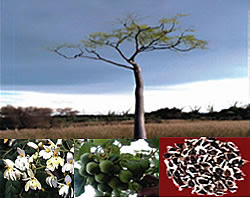Treasures found after 800 years hidden in cave

Photo caption: Ancient ... the discovery of Buddhist paintings and scripts high up in the Himalayas has archaeologists puzzled and excited / Reuters / Reuters
By Gopal Sharma in Kathmandu
May 03, 2007 12:00
ORIGINAL ARTICLE SOURCE IS HERE
Artwork could date back to 13th century
Archaeologists 'excited and puzzled'
Paintings, scripts found in caves at 4300m
EXPLORERS have discovered a series of caves decorated with ancient Buddhist paintings, set in sheer cliffs in Nepal's remote Himalayan north, leaving archaeologists excited and puzzled.
An international team of scholars, archaeologists, climbers and explorers examined at least 12 cave complexes at 4300m near Lo Manthang, a mediaeval walled city in Nepal's Mustang district, about 125km northwest of Kathmandu.
The caves contain paintings that could date back as far as the 13th century, as well as Tibetan scripts executed in ink, silver and gold and pre-Christian era pottery shards.
“Who lived in those caves? When were they there, when were (the caves) first excavated and how did the residents access them, perched as they are on vertical cliffs?” Broughton Coburn, an American member of the survey team, asked.
“It's a compelling, marvelous mystery.”
Explorers from the US, Italy and Nepal used ice axes and ropes to climb to the caves, cutting steps in the cliff face as they went.
“These findings underscore the richness of the Tibetan Buddhist religious tradition of this area - stretching back nearly a millennium - as well as the artistic beauty and wide geographical reach of Newari artists,” Mr Coburn, an expert in Himalayan conservation and development, said.
Newaris are ethnic Nepalis renowned for skills in wall paintings and other forms of mostly Buddhist art.
The cave complexes are several hours walking distance apart.
Some chambers were thought to have been used for burials, and there were also mounds archaeologists hope may hide further treasures.
There are about 20 openings in each complex, and their multiple floors are connected by vertical passages with rudimentary handholds or footholds, requiring some climbing skill to negotiate.
They contained stupas, decorative art and paintings depicting various forms of the Buddha, often with disciples, supplicants and attendants.
The site of recent findings lies north of Mount Annapurna, the world's 10th highest mountain.
Mr Coburn said the artifacts remained unpillaged partly because the area has, until recently, been inaccessible.
One cave's mural paintings were executed in sub-tropical themes - containing palm trees, billowing Indian textiles and birds as well as animals, he said.
“For Nepal, and for the Lobas, the people of northern Mustang, these are national treasures, and they need to be preserved and protected,” Mr Coburn said.
Government officials were upbeat.
“These are very hopeful findings and foreign explorers could be allowed to carry out further exploration in the area,” Prakash Darnal, senior archaeologist at the Government's ministry of culture, said.
Few foreigners are currently allowed to visit the area.


Comments